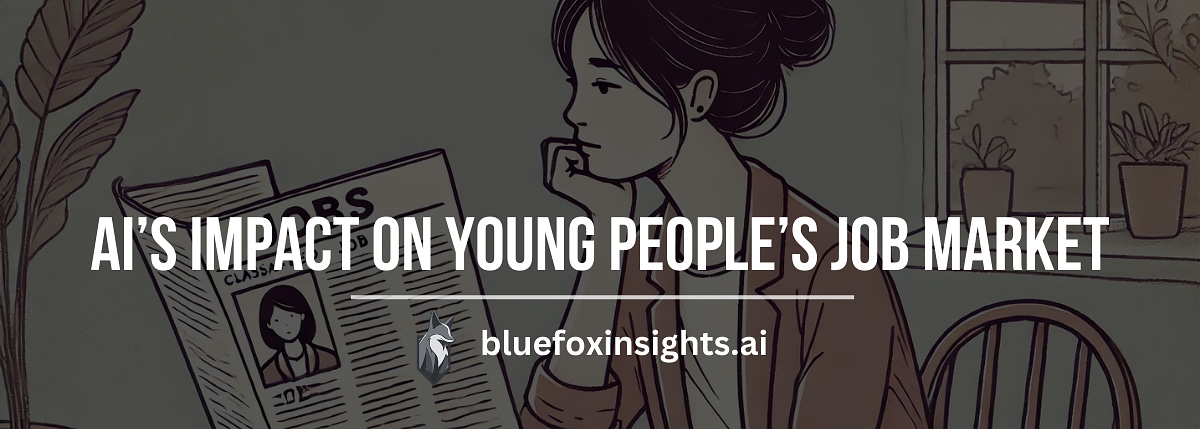Young People and the Future Job Market in the Age of AI
In a recent edition of , I explored the significant impact AI is having on the job market and the wave of layoffs occurring across various industries. A colleague who hires tech contractors shared that many companies are shifting their budgets from tech staff augmentation to AI development. This reallocation of resources underscores how AI is transforming the job landscape.
Rethinking the STEM Rush
Nobel Prize-winning economist Christopher Pissarides has highlighted that certain IT jobs might soon become obsolete due to the very AI technologies they helped develop. While there's a current surge in demand for STEM skills, the long-term outlook suggests a shift. AI advancements could automate many tasks these jobs perform, leading to an oversupply of STEM graduates. As Pissarides notes, the skills needed today for developing and applying AI might not be required in the near future, as AI itself will handle those tasks.
Reevaluating Coding Education
Recently, I've started speaking with K-12 superintendents in the western PA area about whether teaching coding to kids is still a smart approach. While I believe a foundational understanding of coding will remain valuable, it's crucial to recognize that AI can already code better than most expert professionals. This realization should prompt us to reconsider the emphasis we place on coding education and instead focus on skills that AI cannot easily replicate.
The Importance of Soft Skills
As AI takes over more technical and repetitive tasks, the value of human-centric skills is likely to rise. Jobs requiring emotional intelligence, creativity, and interpersonal communication—skills that AI cannot easily replicate—will remain vital. Fields such as healthcare, education, and hospitality will still need a human touch, ensuring steady demand in these areas.
The Growing Need for Trades
Another critical consideration for young people is the enduring importance of trades. Professions such as plumbing, electrical work, and construction are not only essential but also face a shortage of skilled workers. These jobs are less likely to be replaced by AI in the foreseeable future and offer stable, well-paying career paths. College may no longer be the default option, and vocational training could become an attractive and practical alternative.
Practical Career Advice from "The Algebra of Wealth"
Scott Galloway's The Algebra of Wealth offers pragmatic career advice, urging young people not to choose jobs solely based on their passions. Instead, they should seek roles where they have a natural talent and where there is demand. This approach ensures financial stability and provides the capital to pursue passions as hobbies. While it's ideal to find something that aligns with both talent and passion, this scenario is rare. Galloway's advice is a practical approach to navigating the job market, especially in the context of AI's influence.
My Journey: Talent Over Passion
Reflecting on my own journey, I grew up as a son of Korean immigrant parents in Chicago. Like many immigrant families in the 70s and 80s, we had to focus on making money. While my non-Korean friends got Nintendos, my dad bought me a Radio Shack TRS-80 for Christmas and told me, "Joe, this is a computer. It is the future. Learn it." At the time, I was heartbroken because my passion was playing Nintendo, but I soon discovered that I was extremely talented at computers. This talent eventually led me to earn a PhD using technologies that became the underpinnings of generative AI. My path stemmed from my natural abilities, not necessarily my passion. Today, my passion is golf, but I certainly can't qualify for any tour or even amateur tournament.
Adapting to AI in the Workforce
For those already set on a STEM path, it’s important to adapt and broaden skill sets. Developing expertise in areas like AI ethics, management, and application across various industries can provide a competitive edge. Moreover, interdisciplinary skills combining STEM with fields such as business or social sciences can open up new opportunities where AI enhances rather than replaces human work.
Conclusion
As AI continues to evolve, young people must stay informed and adaptable. Diversifying skills beyond traditional STEM fields, focusing on roles that leverage human strengths, and considering alternative education paths like trades can provide a more resilient and fulfilling career trajectory. Embracing these changes thoughtfully will be key to thriving in the AI-driven future.
For those interested in digging deeper into how AI is reshaping the business world, I highly recommend checking out my short-course, . This course offers valuable insights and practical advice for navigating the rapidly changing landscape.




